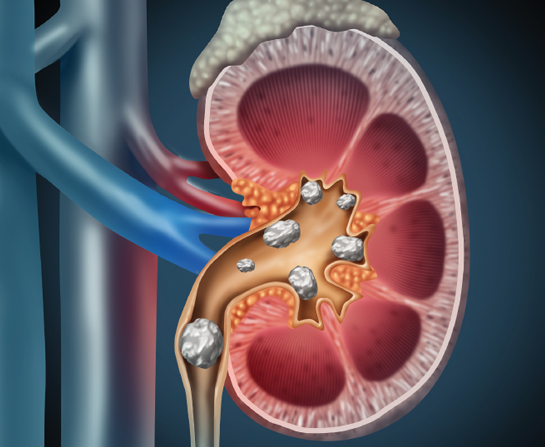Replace your Missing Teeth with Dental Implants
May 1, 2022 Return

Words Mok Shi-Lynn
Dr G.K. Ananda |
If you lose a tooth, what can you do? Generally, there are three options: a denture, bridge or implant.
Dental implants are replacement tooth roots that are built into your jawbone to hold artificial teeth. A relatively new procedure, implants became more popular just a few decades ago and have become an effective way to replace missing teeth. The implant, which can be in the form of a screw (usually made of titanium), is placed in the jawbone. After the bone has healed, the replacement tooth, called a crown, is attached to the implant.
According to Dr GK Ananda, a consultant oral maxillofacial surgeon, dental implants may be a better option for long term tooth replacement compared to dentures and bridges. “An implant is the next best thing to your natural tooth,” he explains. “This is because, to make a bridge, we need to ‘destroy’ the adjacent teeth. I don’t like the idea of destroying healthy teeth which have no problems. If, for some reason, the implant fails, you are back to just one missing tooth. However, if a bridge fails, you now have three missing teeth. So there is a potential for more problems if you have a bridge.”
“Compared to dentures, well, an implant would reduce the chances of embarrassing occurrences such as your denture falling out when you chew,” Dr GK laughs.
In addition, dental implants have other advantages, such as improved comfort and appearance because it fuses with your bone and looks and feels almost like your natural tooth. Eating and chewing tend to be easier with an implant compared with a denture because a denture may move or slide when you chew.
The disadvantage of an implant, according to Dr GK, is in the cost and the time it takes. “It is more expensive than a bridge or denture. Also, you can get a bridge done in a week or two at the most. For an implant, it takes at least three months.”
Caring for your implant
A dental implant, if properly done and given proper care, may last as long as your natural teeth. The key lies in taking care of it. “You have to care for the implant as you would your natural teeth,” Dr GK explains. “The six-monthly follow up with your dentist is important. If you start developing plaque and tartar, you will have the same problems. Or you may develop gum problems.”
Moreover, sometimes a person may not experience any pain if his dental implant becomes infected and therefore, the problem goes unnoticed. “Your natural teeth have ligaments attached to receptors that send messages back to the brain. If your natural tooth moves, the sensation will register as pain. However, an implant doesn’t have such ligaments; it’s just stuck into the bone. So any movement or micromovement of the implant is not detected. That feedback mechanism is not there. I have had patients who returned with their implant having fallen out but they did not experience any pain or problems. So people need to understand that oral hygiene and regular dentist visits are just as important for your replacement teeth,” Dr GK reiterates.
Are implants suitable for everyone?
While implants are a suitable solution for missing teeth for most people, they should only be done on those aged 18 years and above. “You should place an implant only after growth has ceased,” Dr GK says. “You should not do anything permanent on a growing child. Because as the child grows, the implant will stay put while the other teeth and jaw will grow forwards.”
When deciding on suitability of a dental implant, the dentist will need to ascertain if you have healthy gums and adequate bone. If there is insufficient bone, the dentist may have to perform a bone graft before he can place the implant. “If someone lost his tooth 30 years ago, for example, the amount of bone in that area can be very thin,” Dr GK explains. “Implant work is like building a house. First, we have to do soil work, which is the bone – is there enough? What is the quality of the bone? After that, we build the foundation and then put in the pillars. Finally, we place the roof which is your replacement tooth. All this can take between four to five months.”
The implant surgery itself is relatively straightforward, according to Dr GK. “An uncomplicated implant procedure will take around 15 to 20 minutes. It’s actually easier than an extraction. For an implant, I will make a cut, drill a hole in the bone, screw the implant in and then stitch it closed.” He also reminds us that the surgery is done in a sterile manner in order to minimize the chances of an infection occurring.
Pain and swelling are part and parcel of any surgery, which can be managed with medications. If there are no complications, a patient should be able to resume his normal diet after two weeks of recovery.
Speak with your dentist if you think a dental implant may be a suitable option for you.
Keep a record of your implant
Your natural teeth may change colour as you age, but your implant will look the same. So, 10 years after you received your implant, you may want to replace the crown (the tooth part of the implant). While this is possible, Dr GK reminds us that there are over 200 brands of implant in the market, each one slightly different from the other. “Know your implant… what brand it is and so on. Get your dentist to tell you what was used and what size it is. Keep a record of it for future reference,” he says.
Good oral hygiene and regular dentist visits are just as important for implants as they are for your natural teeth.
If you like this article, do subscribe here.






